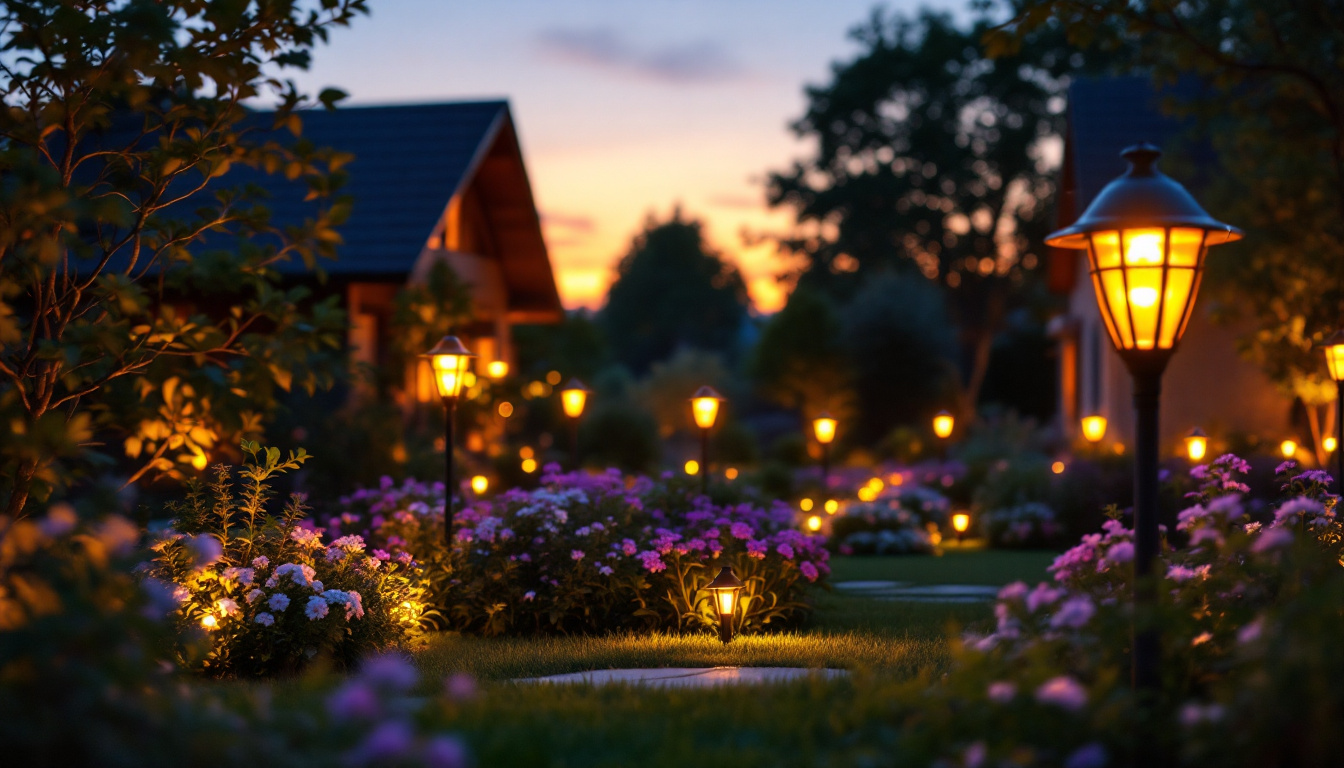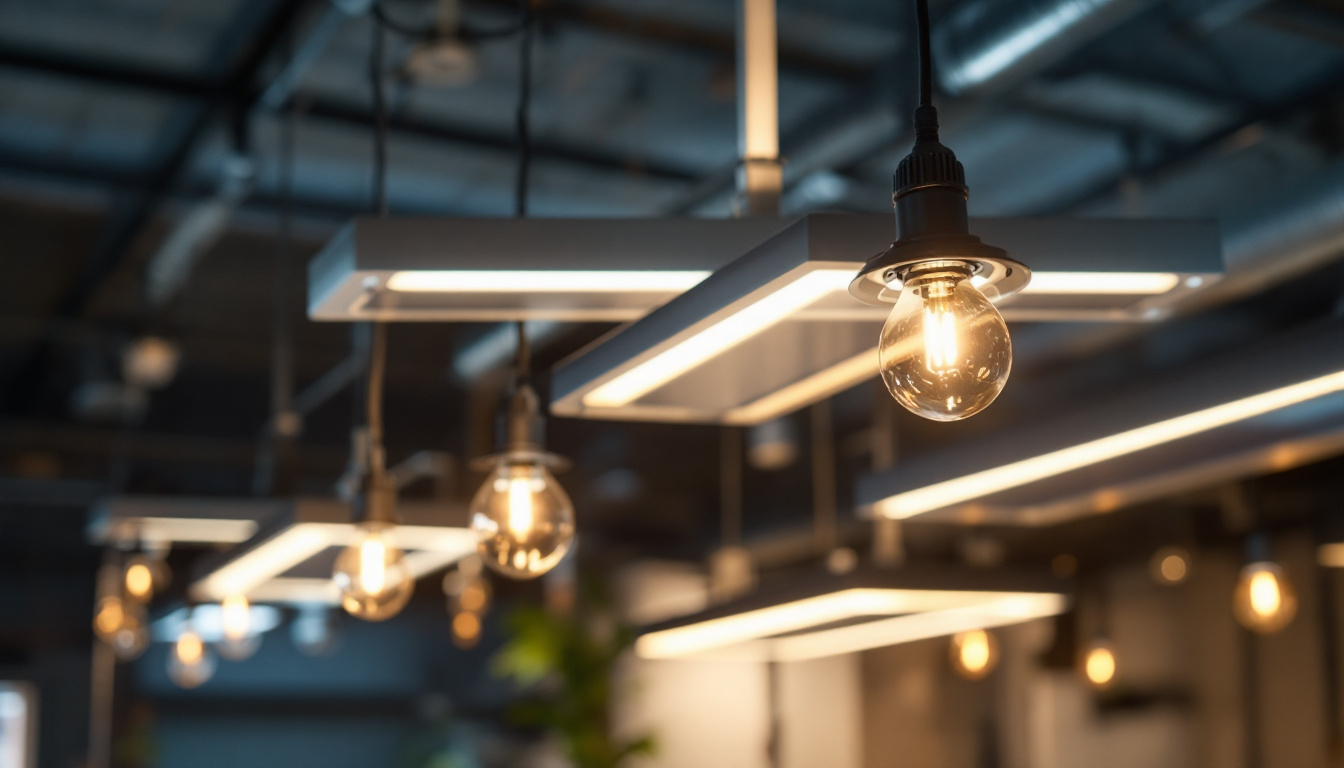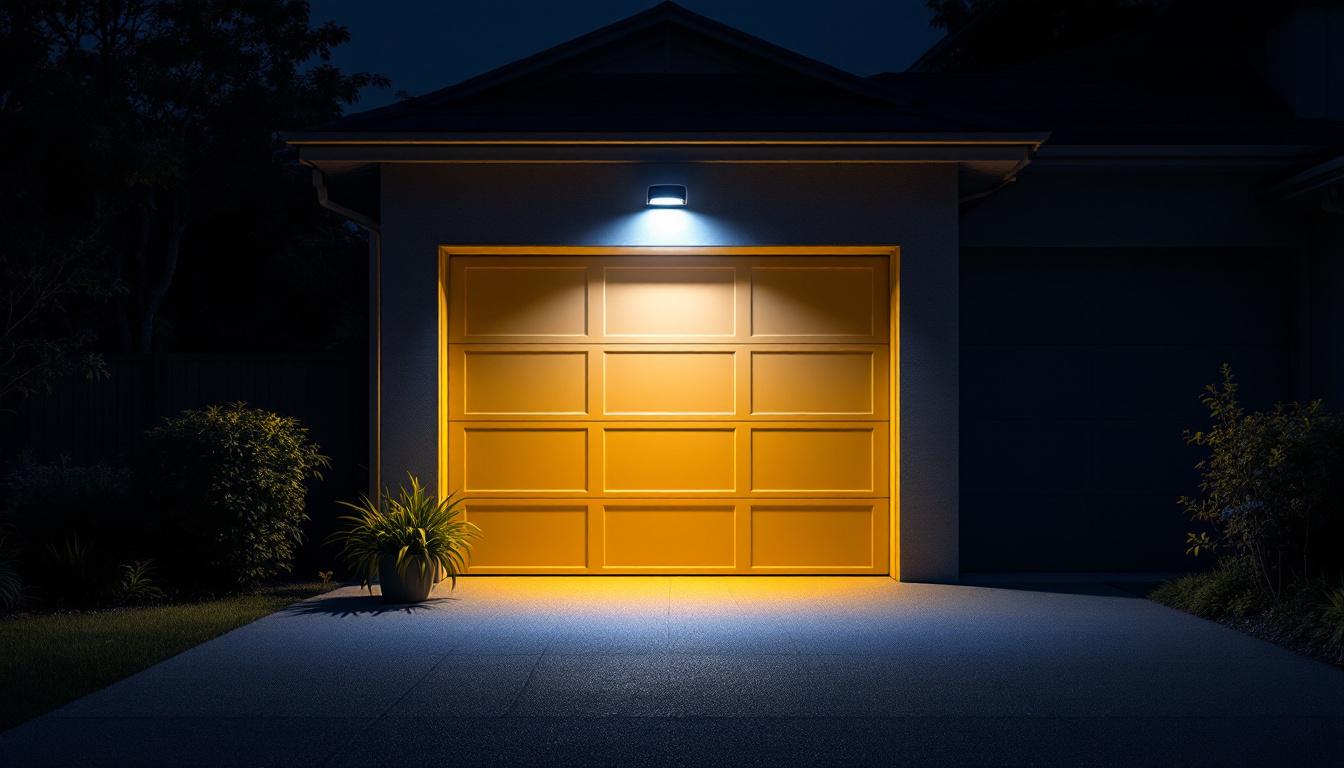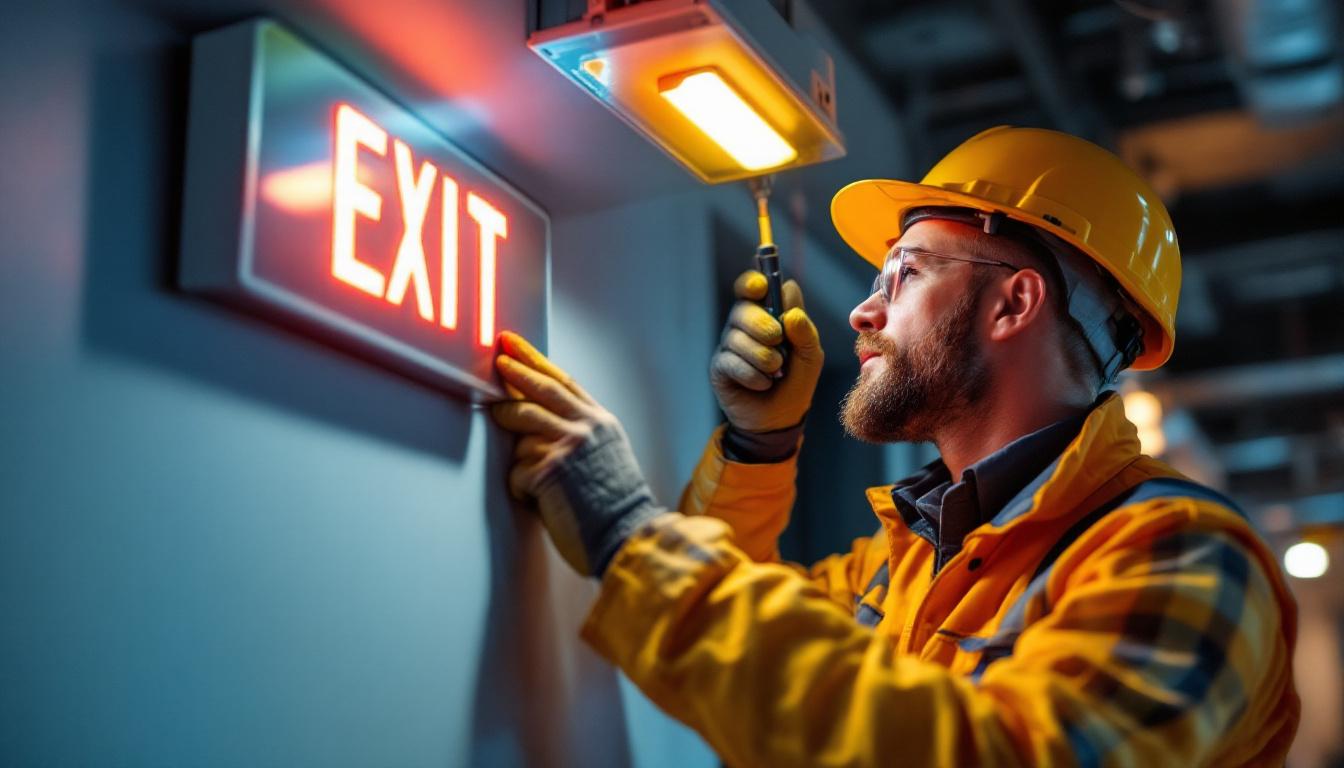
In the ever-evolving world of outdoor lighting, solar patio lamps have emerged as a popular choice among homeowners and contractors alike. Their energy efficiency, ease of installation, and eco-friendliness make them an attractive option. However, despite their advantages, many lighting contractors still make critical mistakes when incorporating solar patio lamps into their projects. Understanding these common pitfalls can help contractors enhance their services and deliver better results to clients.
One of the most significant mistakes lighting contractors make is failing to grasp the fundamental principles of solar technology. Solar patio lamps rely on photovoltaic cells to convert sunlight into electricity. If contractors do not fully understand how these systems work, they may misestimate the number of lamps needed or the optimal placement for maximum sunlight exposure.
Moreover, contractors often underestimate the importance of battery storage in solar lamps. The capacity and quality of the battery can significantly impact the performance of the lamp, especially during cloudy days or in areas with limited sunlight. A lack of knowledge in this area can lead to customer dissatisfaction when lamps do not perform as expected.
Additionally, it is crucial for contractors to be aware of the advancements in solar technology, such as the development of more efficient photovoltaic cells and smart solar systems that can be integrated with home automation. Understanding these innovations can help contractors provide cutting-edge solutions that not only meet but exceed customer expectations. By staying informed about the latest trends and technologies, contractors can offer products that are not only functional but also energy-efficient, ultimately leading to greater customer satisfaction and loyalty.
Another common oversight involves neglecting to consider local climate conditions. Different regions experience varying amounts of sunlight throughout the year, which can affect the performance of solar lamps. Contractors must assess the specific climate of the installation site to ensure that the selected solar lamps will function optimally.
For instance, in areas with long winters and short days, it may be necessary to choose lamps with larger battery capacities or those designed to capture more sunlight. Failing to account for these factors can lead to inadequate lighting solutions that disappoint clients.
Furthermore, understanding the local weather patterns is equally important. Regions prone to heavy rainfall or snowfall may require solar lamps with enhanced weatherproofing and durability features. This not only ensures longevity but also maintains consistent performance despite adverse weather conditions. By taking these local climate factors into account, contractors can tailor their solar lighting solutions to meet the unique needs of each installation site, thereby enhancing their reputation as knowledgeable and reliable professionals in the field.
In the pursuit of cost savings, some contractors may opt for lower-quality solar lamps. While these products may come with a lower price tag, they often lack the durability and efficiency of higher-end options. Cheap solar lamps may fail prematurely, leading to increased maintenance costs and dissatisfaction among clients. Furthermore, many of these lower-quality options may not perform well in varying weather conditions, resulting in inconsistent lighting that can compromise safety and security in outdoor areas.
Investing in quality solar lamps not only ensures better performance but also enhances the contractor’s reputation. Clients are more likely to refer contractors who provide reliable and long-lasting products, ultimately benefiting the contractor’s business in the long run. Additionally, high-quality solar lamps often come with better warranties and customer support, giving contractors peace of mind and a safety net should any issues arise. This commitment to quality can set a contractor apart in a competitive market, fostering trust and loyalty among clients.
Lighting is not just about functionality; aesthetics play a crucial role in outdoor spaces. Contractors often focus solely on the technical aspects of solar lamps, neglecting their design and how they fit into the overall landscape. A poorly chosen lamp can clash with the surrounding decor, detracting from the beauty of the outdoor area. Moreover, the wrong choice can diminish the intended ambiance, whether it’s creating a cozy atmosphere for evening gatherings or providing bright illumination for safety and navigation.
To avoid this mistake, contractors should offer clients a range of styles and designs that complement their homes and gardens. By prioritizing aesthetics alongside functionality, contractors can create harmonious outdoor spaces that clients will love. Furthermore, incorporating elements such as color temperature and light distribution can enhance the visual appeal of the space. For instance, warm white lights can create an inviting atmosphere, while cooler tones may be more suitable for modern, sleek designs. By understanding the interplay of light and design, contractors can elevate their projects and ensure that their clients are not only satisfied but truly delighted with the final result.
The placement of solar lamps is critical to their performance. A common mistake contractors make is installing lamps in shaded areas where they receive insufficient sunlight. This can drastically reduce their efficiency and lifespan. Contractors should conduct thorough site assessments to identify the best locations for solar lamps, ensuring they receive adequate sunlight throughout the day.
Additionally, the height and angle of installation can also impact performance. Solar lamps should be positioned at heights that allow for maximum light dispersion while minimizing obstructions. Taking the time to plan the installation properly can prevent future issues and enhance customer satisfaction. Furthermore, it is beneficial to consider seasonal changes in sunlight exposure. For instance, as trees grow or new structures are built, the amount of sunlight available to the solar lamps may decrease over time. Regular maintenance checks can help identify any new shading issues that may arise, ensuring that the lamps continue to operate at optimal levels.
While solar lamps are often touted for their wireless capabilities, some models may still require wiring for additional features, such as remote control or smart technology integration. Contractors may overlook these requirements, leading to installation challenges and functionality issues.
Understanding the specific needs of each solar lamp model is essential. Contractors should familiarize themselves with the installation requirements and ensure that all necessary components are accounted for before beginning the project. This includes not only the wiring but also the compatibility of the solar lamps with existing electrical systems, if applicable. Moreover, as smart home technology continues to evolve, the integration of solar lamps with home automation systems is becoming increasingly popular. Contractors should stay updated on the latest advancements in solar technology and connectivity options to provide clients with the most efficient and modern solutions available. This proactive approach can lead to more successful installations and satisfied customers who appreciate the added functionality of their solar lighting systems.
Once the installation is complete, the responsibility does not end there. Many contractors neglect to educate clients on the maintenance and care of solar lamps. Proper maintenance is crucial for ensuring the longevity and performance of solar lighting systems. Clients should be informed about cleaning the solar panels, checking battery performance, and replacing components as needed.
Providing clients with a maintenance guide or schedule can help them keep their solar lamps in optimal condition. This not only enhances the client’s experience but also reduces the likelihood of service calls for issues that could have been easily avoided.
In the realm of solar lighting, customer support is paramount. Contractors often underestimate the importance of being available for follow-up questions or concerns. Clients may have inquiries about performance, warranty claims, or troubleshooting, and contractors should be prepared to assist them.
Establishing a clear line of communication and offering ongoing support can build trust and foster long-term relationships with clients. This approach can lead to repeat business and referrals, ultimately benefiting the contractor’s bottom line.
In a competitive market, effective marketing is crucial for attracting clients. Many contractors fail to highlight the benefits of solar patio lamps in their marketing materials. Emphasizing energy savings, environmental benefits, and low maintenance costs can help clients understand the value of solar lighting solutions.
Utilizing various marketing channels, such as social media, blogs, and local advertising, can help contractors reach a broader audience. Showcasing successful projects and client testimonials can also enhance credibility and attract new clients.
Clients may be hesitant to invest in solar patio lamps due to misconceptions about their performance or cost-effectiveness. Contractors should take the time to educate clients about the advantages of solar lighting. This includes discussing the long-term savings on energy bills, the positive environmental impact, and the convenience of easy installation.
By addressing common concerns and providing clear information, contractors can help clients make informed decisions about their outdoor lighting options. This not only boosts sales but also positions the contractor as a knowledgeable expert in solar lighting.
Incorporating solar patio lamps into lighting projects presents both opportunities and challenges for contractors. By avoiding common mistakes such as neglecting to understand solar technology, compromising on product quality, and failing to educate clients, contractors can enhance their services and deliver exceptional results. With the right approach, solar patio lamps can become a valuable addition to any outdoor space, benefiting both contractors and their clients.
As the demand for sustainable and energy-efficient lighting solutions continues to grow, contractors who prioritize quality, education, and customer support will stand out in the market. Embracing these best practices will not only improve project outcomes but also foster lasting relationships with clients, paving the way for future success.
Ready to avoid the common pitfalls and set your lighting projects apart with superior solar patio lamps? At LumenWholesale, we provide contractors like you with the highest quality, spec-grade lighting products at unbeatable wholesale prices. Say goodbye to inflated markups and hello to a vast selection of reliable, high-performance lighting that meets the highest industry standards. Plus, with free shipping on bulk orders, you can get premium lighting at the best value — without hidden fees or compromises. Elevate your outdoor lighting projects and delight your clients by choosing Wholesale Lighting at the Best Value with LumenWholesale.

Discover how lighting contractors can elevate their projects with garden lights solar solutions.

Discover how Philips Advance Ballast can revolutionize your lighting projects by ensuring efficiency and longevity.

Discover how a motion activated garage light enhances safety, saves energy, and offers convenient illumination.

Discover how battery exit signs can boost your lighting contracting bids.